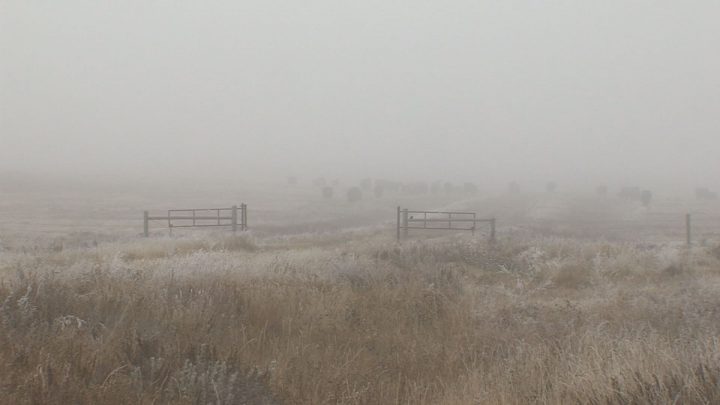It’s a disease that is rare and not often found in Canadian cattle but is now having paralyzing effects across the Prairies after bovine tuberculosis (TB) was reported in a single cow from Alberta.

READ MORE: 10,000 cattle to be killed after bovine tuberculosis outbreak
This is ground zero of the bovine tuberculosis crisis in Western Canada.
It was at a ranch near Jenner, Alta., that a cow was confirmed to have the disease in late September when it was shipped to the United States.
“My initial reaction was that we’re in a lot of trouble,” Brad Osadczuk said.
Now more than 40 cattle operations in southeast Alberta and southwest Saskatchewan involving 22,000 animals have been issued quarantine orders and movement controls but that number is expected to rise.
According to the Canadian Food Inspection Agency, the majority of ranches involved are in Alberta. Although only six cattle have tested positive for the disease since September, at least 10,000 head of cattle are now set for slaughter.
At the Osadczuk ranch, 385 cows and calves will be destroyed along with cow calf pairs, 51 bulls and every other animal on the farm.
“It takes a lifetime to build a ranch herd, get your breeding program, the cattle the way you want them and then in one instance it’s gone so it’s going to be difficult,” Osadczuk said.
READ MORE: Bovine tuberculosis case prompts farmers to call for better emergency mechanism
There is compensation for ranchers whose animals are destroyed but no payments for producers who can’t sell or move their cattle.
“If you were to ship your calves the following week and they came in and said ‘no nothing is going anywhere,'” Ryder Lee, CEO of the Saskatchewan Cattlemen’s Association, said.
“Then you’ve got to feed them for a couple of months you’re talking about running out of feed, running out of cash because you didn’t get to ship your cattle to town and get your once-a-year paycheque.”
Additional staff have been brought in to aid with the investigation given the number of herds involved and the requirement to trace and test animals as far back as five years.
“All of this with the not knowing for all those people the uncertainty is very stressful and for the rest of the industry that’s not right in there, it’s very concerning because you don’t what is going to become of it,” Lee said.
“It’s something that is out of our control so we’ll wait and see how big the footprint is.”




Comments